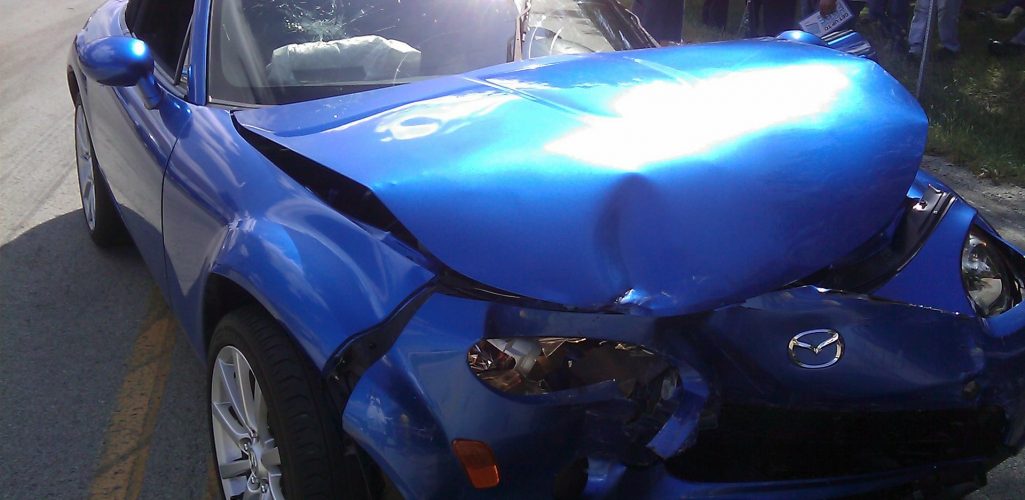Comprehensive (also known as Other Than Collision, or OTC) and Collision are two auto policy offerings that cover damage to your car. If you own your car outright, these are optional coverages. However, if you have a lease/loan on your vehicle, comprehensive and collision coverage may be required as a part of your lease/loan agreement.
Both coverages are subject to a deductible, which is the amount of money that you agree to pay before the insurance company. For example, if you have a $1,000 deductible and the claim totals $3,500 – you pay the first $1,000 and the insurer pays the remaining $2,500. Although they are often mentioned together (ever heard someone refer to the term “full coverage”) they can be purchased independently of each other, can carry different deductibles and cover very different things.
Here is a quick synopsis of what each covers:
Collision
As the name implies, collision coverage helps to pay for damage to your vehicle when it collides with something, regardless of fault. Here are some scenarios in which you might make a collision claim.
- You hit a telephone pole.
- Your vehicle was damaged as a result of a hit and run or an uninsured driver.
- Your vehicle was damaged as a result of an accident for which you are found liable. Keep in mind, if you are at fault and you don’t have collision coverage, you are responsible for paying for repairs to your vehicle out-of-pocket.
- Your vehicle was damaged as a result of an accident you were not responsible for, however you don’t want to work with the other party’s insurance company. In this scenario, you can file a claim under your collision coverage. Your policy will cover the repairs, however you will be subject to your deductible. Your insurer will subrogate (make an attempt to recoup the money from the responsible party’s insurer) and if they are successful in collecting the full amount, you will be reimbursed for your deductible.
Comprehensive
Comprehensive coverage helps to pay for repairs to your car that are caused by things “other than collision”. Here are some scenarios in which you might make a comprehensive claim.
- Your vehicle is damaged in a hail storm.
- A tree falls your vehicle.
- Someone steals or vandalizes your car.
- Your windshield is cracked and needs to be repaired or replaced.
- A deer jumps in front of your car.
Do I need comprehensive or collision coverage?
If you have a lease/loan on your vehicle, you are likely required to carry comprehensive and collision coverages.
If the idea of covering a repair bill or total loss out-of-pocket is daunting, then adding comprehensive and/or collision coverage to your auto policy is an affordable way to protect yourself from big, unexpected bills from the body shop.
If you still have questions about collision and comprehensive coverages or if you want to make sure you’re covered, call us today!

